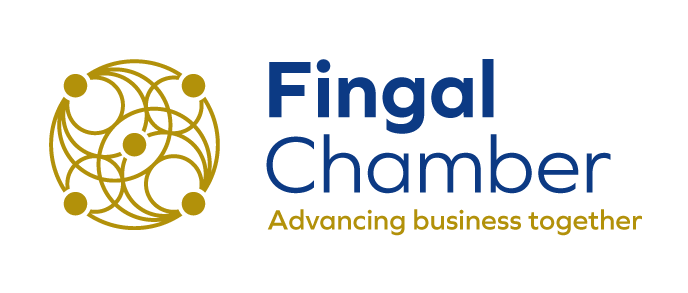How Health and Safety Audits Promote Organisational Wellbeing
Health and safety management is often perceived as a box ticking or compliance exercise that adds no real value to a business. This attitude overlooks the real benefits to be gained by Organisations who take a proactive approach to promoting Employee health and wellbeing. Employers with strong health and safety records enjoy tangible business benefits like fewer accidents, lower insurance premiums, high Employee morale and high productivity. An investment in health and safety is therefore an investment in the overall wellbeing of an Organisation.
Health and Safety Trends
In Adare’s latest workplace survey, the HR Barometer Series 8.1, there was a notable increase in the overall national absence rate from 5.6% in 2022 to 8.1% in 2023. The percentage of Employers reporting a rise in short-term absences due to back pain increased from 12% in 2022 to 17% in 2023.
Health and Safety Authority (HSA) statistics over a five-year period between 2018 and 2022 also found there had been significant increases in the reporting of non-fatal work-related incidents with falls and manual handling issues being the most common triggers.
The HSA’s recently published Annual Report recorded 43 work-related fatalities in 2023 with 15 Organisations prosecuted on indictment and four prosecuted summarily, resulting in fines totalling €1,377,500.
While bare statistics do not express the true business impact of work-related incidents, the figures demonstrate that Organisations in all sectors are exposed to a wide range of health and safety risks.
Health and Safety Legislation
The Safety, Health and Welfare at Work Act 2005 sets out the responsibilities of both Employers and Employees in maintaining a safe place of work.
Employers (including self-employed persons) are primarily responsible for creating and maintaining a safe and healthy workplace. An Employer’s duties include:
- Managing and conducting all work activities so as to ensure the safety, health and welfare of people at work including the prevention of improper conduct (horseplay for instance) or behaviour likely to put Employees at risk (bullying for example).
- Designing, providing and maintaining a safe place of work that has safe access and egress, and uses plant and equipment that is safe and without risk to health.
- Prevention of risks from the use of any article or substance, or from exposure to physical agents, noise, vibration and ionising or other radiations.
- Planning, organising, performing, maintaining and, where appropriate, revising systems of work that are safe and without risk to health.
- Providing and maintaining welfare facilities for Employees at the workplace.
- Providing information, instruction, training and supervision regarding safety and health to Employees, which must be in a form, manner, and language that they are likely to understand.
- Cooperating with other Employers who share the workplace so as to ensure that safety and health measures apply to all Employees (including fixed-term and temporary workers) and providing Employees with all relevant safety and health information.
- Providing appropriate protective equipment and clothing to the Employees (and at no cost to the Employees).
- Appointing one or more competent persons to specifically advise the Employer on compliance with the safety and health laws.
- Preventing risks to other people at the place of work.
- Ensuring that reportable accidents and dangerous occurrences are reported to the Health and Safety Authority.
Employees likewise (including full or part-time, permanent or temporary, regardless of any employment or contractual arrangement they may have) also have duties under the Act. They must:
- Comply with relevant laws and protect their own safety and health, as well as the safety and health of anyone who may be affected by their acts or omissions at work.
- Ensure that they are not under the influence of any intoxicant to the extent that they could be a danger to themselves or others while at work.
- Cooperate with their Employer with regard to safety, health and welfare at work.
- Not engage in any improper conduct that could endanger their safety or health or that of anyone else.
- Participate in safety and health training offered by their Employer.
- Make proper use of all machinery, tools, substances, etc. and of all personal protective equipment provided for use at work.
- Report any defects in the place of work, equipment, etc. which might endanger safety and health.
Health and Safety Compliance
Regular Health & Safety Audits are an effective way to comply with the statutory obligations of this legislation. Health & Safety Audits not only ensure compliance but also serve as a regular method of identifying and controlling workplace risks.
A Health & Safety Audit should be tailored to the needs of each Organisation, but some activities are likely to include the following:
- Review of Health and Safety Risk Assessments
- Review of Health and Safety Statement (typically valid for 12 months)
- Review of Health and Safety Policies and ensuring it corresponds with practical procedures
- Maintenance and inspections of specific equipment or services as required by any sector specific regulations
- Review of staff competencies (interviews typically required), including relevant training for staff to ensure they know how to maintain a healthy and safe workplace, and support health and safety practices with their own behaviours.
Benefits of Proactive Health and Safety Management
Taking a proactive approach to Health and Safety Management produces a range of tangible business benefits. Organisations with strong health and safety cultures experience fewer accidents, injuries and compliance risks. They have lower insurance costs, less Employee claims as well as high Employee morale and productivity all of which leads to a strong reputation as a good business to transact with and a good Employer to work for.
To find out more specifics about how Health and Safety Audits promote Organisation Wellbeing, please contact the team at Adare at info@adarehrm.ie or by phone at 01 561 3594.
